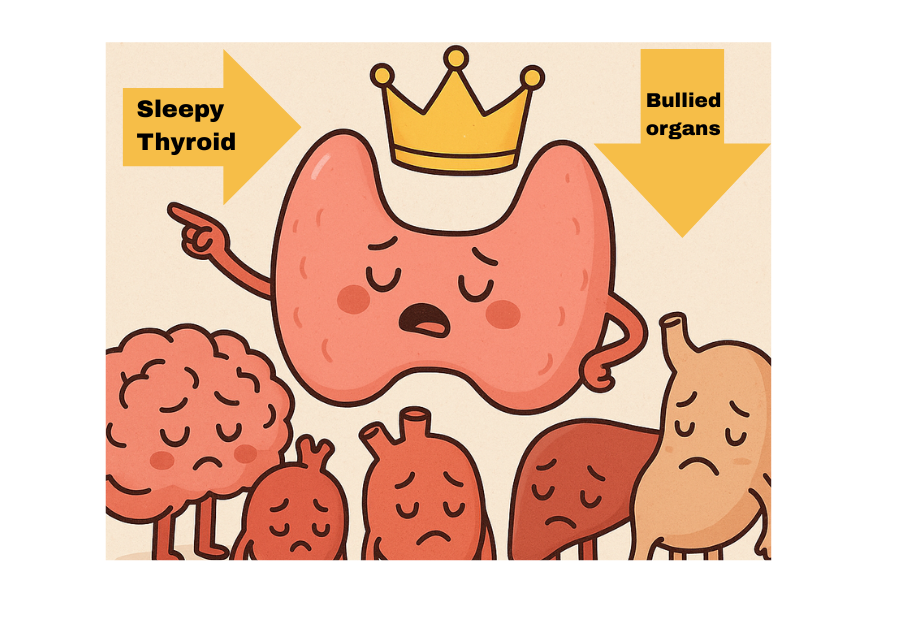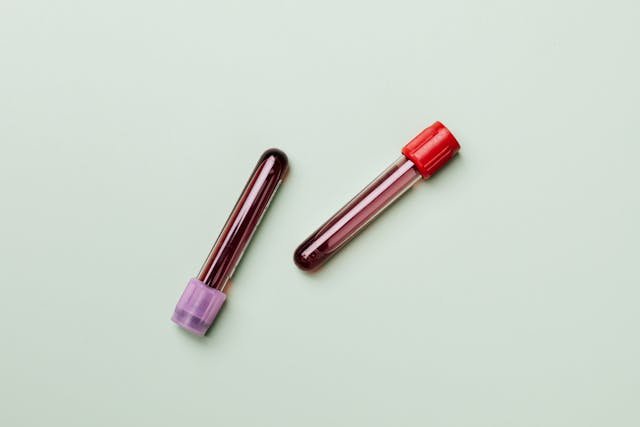We’ve all had that moment: you walk into a room and forget why you went in. You can’t concentrate, you interrupt conversations, your brain feels like a browser with 83 tabs open and one playing music, you just can’t find it.
But what if it’s not ADHD?
Turns out, several medical conditions can look suspiciously like ADHD. Some of them even trick the professionals. So let’s take a tour through the usual suspects, bust the confusion, and help you figure out what’s what.
Because before you start questioning your entire personality or ordering brain supplements at 3am, let’s make sure it’s not just your thyroid being a diva.
Wait, This Isn’t ADHD?
Here’s the uncomfortable truth: ADHD isn’t the only thing that can make you forgetful, impulsive, moody, or chronically late. In fact, several medical issues, some temporary, others chronic, can produce eerily similar symptoms.
That includes:
- Bipolar disorder
- Hypoglycemia
- Thyroid imbalances
- Anxiety disorders
- Even sleep apnoea or perimenopause, if we’re being thorough
These conditions can mimic ADHD so closely that even specialists need time, tests, and a full history to tell the difference. Which is a problem, because ADHD diagnosis is already a maze of 12-month plus waitlists, self-assessments, and armchair experts.
Bipolar vs ADHD: The Mood-Switching Showdown
Let’s get one big confusion out of the way. ADHD involves impulsivity and distractibility. Bipolar involves mood swings and energy shifts. But here’s where it gets slippery: in a manic or hypomanic state, someone with bipolar may appear hyperactive, grandiose, restless, distractible, and talkative, just like someone with ADHD.
Key differences:
- ADHD is consistent. It shows up in every setting and is usually lifelong. Bipolar comes in episodes – distinct periods of elevated or depressed mood.
- Bipolar affects sleep differently. During mania, people may sleep 2 hours and feel fantastic. ADHD folk might struggle with sleep, but don’t feel superhuman afterwards.
- Bipolar has clear mood cycles. Think weeks of depression, then sudden shifts. ADHD moods swing rapidly but are usually reactive, not cyclical.
Fun but cruel fact: You can have both. Around 20% of adults with bipolar disorder also meet criteria for ADHD.
The Blood Sugar Betrayal: Hypoglycemia and Executive Dysfunction
Let’s talk sugar, not the fun cupcake kind, but your body’s glucose levels. When your blood sugar drops too low (aka hypoglycemia), the brain freaks out. After all, glucose is its main fuel.
Symptoms can include:
- Confusion
- Irritability
- Sweating
- Shaky hands
- Sudden fatigue
- Inability to focus or think clearly
Sound familiar?
This is particularly sneaky because hypoglycemia doesn’t always mean you’re diabetic. It can be reactive (after high-carb meals), tied to hormonal issues, or even due to skipping meals when you’re too busy hyperfocusing on cleaning the grout.
Test tip: If your “ADHD” crashes at certain times of day, especially mid-morning or late afternoon, keep a food-and-symptom diary. You might just need a snack, not a stimulant.
Thyroid Troubles: When Your Hormones Hijack Your Focus
Your thyroid is a tiny gland with a God complex. It regulates your metabolism, energy, mood, and cognition. When it’s underactive (hypothyroidism), you may feel:
- Foggy-headed
- Depressed
- Slow
- Forgetful
- Low on energy
Overactive thyroid (hyperthyroidism) swings the other way: anxiety, jitteriness, insomnia, and irritability, all of which can look like ADHD symptoms too.
The sneaky bit?
Even subclinical thyroid issues (when your bloodwork looks almost normal) can mess with your brain. This is especially common in women and can be exacerbated during times of hormonal change like perimenopause or after childbirth.
Tip: Always ask for a full thyroid panel, not just TSH. Free T3, Free T4, and antibodies give the full picture.
ADHD, Anxiety or Something Else?
Let’s talk anxiety. High-functioning anxiety often walks into the same party as ADHD and starts chatting up your nervous system. You might feel:
- Restless
- Distracted
- Forgetful
- Unable to relax
- Easily overwhelmed
But here’s the difference:
- ADHD distractibility is often from boredom or curiosity.
- Anxiety distractibility comes from fear-based rumination or catastrophic thinking.
One is “What’s that shiny thing?”
The other is “What if I forget that shiny thing and ruin my whole life?”
How To Tell What’s Really Going On
So how do you know?
Short answer: you don’t. Not alone.
But there are clues.
Look at the pattern. ADHD symptoms show up before age 12 (though in women and AFAB people, they may be masked until later). Other conditions usually develop later or in response to life events.
Look at the triggers. Do symptoms worsen with sugar? Sleep? Stress? Hormones?
Track your timeline. A sudden personality change in adulthood is not typical for ADHD. That’s when you look at thyroid, bipolar, or medical causes.
Get bloodwork. Basic checks can rule out anaemia, B12 deficiency, blood sugar issues, and thyroid dysfunction – all of which can cloud your cognition.
See a professional who understands both mental health and physical conditions. A functional medicine GP or psychiatrist with ND experience is golden.
Double Trouble: Can You Have ADHD and Something Else?
Yes, absolutely, and this is where it gets wild.
Many people with ADHD also have:
- Anxiety
- Depression
- Thyroid issues
- Autoimmune conditions
- Bipolar (less commonly)
This is called comorbidity, and it makes diagnosis tricky. You might get treatment for one thing while the real problem hums quietly in the background.
Why it matters: If you treat anxiety without treating ADHD, you might still feel stuck. If you assume it’s just ADHD but it’s really hypoglycemia, you might be mismanaging your entire routine.
So What Do You Do Now?
First, don’t panic. You’re not broken, lazy or making it up. You’re asking exactly the right questions.
Second, start with basics:
- Get full blood tests, especially thyroid, glucose, iron, and vitamin D
- Track your symptoms with a journal or app
- Look for patterns: time of day, menstrual cycle, diet, stress
- Speak to a GP or specialist who doesn’t rush to diagnose with 7 minutes and a shrug
- If possible, rule out physical conditions before you pursue ADHD meds
Help others by sharing what you learn. So many people go undiagnosed, or misdiagnosed, for years because no one thought to check their hormones or ask about their blood sugar dips.
Final Thought: Which One Is “Truer”?
The truth is, all of it is true if it’s happening to you. Whether it’s medical, neurological or hormonal, what matters is understanding your own body’s signals and getting the right support.
So the next time someone says “Maybe you just have ADHD,” you can smile sweetly and say:
“Or maybe I’m just low on T3, Sandra.”
Which of these ADHD mimics surprised you most, and have you ever been misdiagnosed? Let’s compare notes in the comments.







